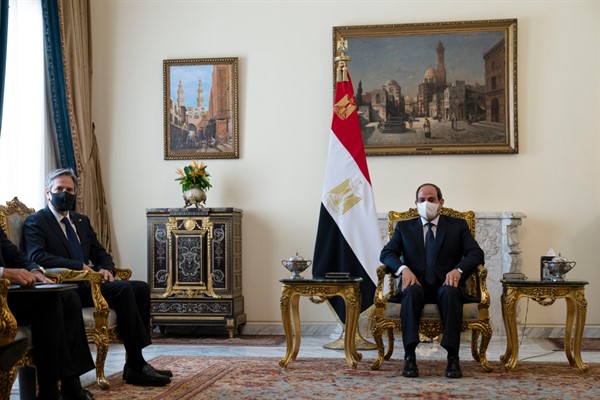During his first four months in office, U.S. President Joe Biden did not speak with his Egyptian counterpart, Abdel-Fattah el-Sisi—a notable departure from precedent given the history of close security ties between the two countries. But after months of silence, Biden spoke with Sisi twice over the course of five days in May, extending his “sincere gratitude” to Egypt “for its successful diplomacy” in securing a cease-fire that ended 11 days of intense fighting between Israel and Hamas, the Palestinian faction that runs the Gaza Strip.
Two days later, U.S. Secretary of State Antony Blinken visited Egypt and Jordan as part of a regional tour to cement the cease-fire. Cairo’s key role in securing the truce propelled it into the diplomatic spotlight once more, allowing the Sisi administration not only to reassert itself in the region and check the rising influence of rival powers, but also to improve its initially sour relations with the Biden team in Washington.
The awkward silence between American and Egyptian leaders immediately after Biden’s inauguration had been telegraphed beforehand. While Trump famously called Sisi his “favorite dictator” despite numerous reports that Sisi’s security forces were harassing, arresting and torturing dissidents, Biden promised to place human rights concerns back at the center of U.S. relations with Egypt. Last July, then-candidate Biden promised “no more blank checks for Trump’s ‘favorite dictator.’”

